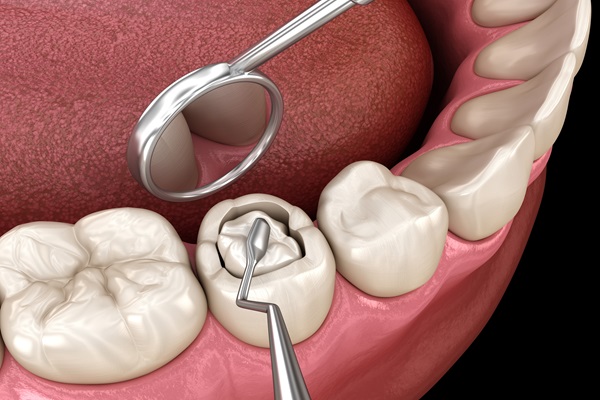How To Know if You Need to See an Emergency Dentist

Most dental care can be done at your regular dentist on your schedule. However, some types of care need the immediate attention of an emergency dentist. Assessing the type and severity of your symptoms is the key to determining when you need emergency care. The faster you act, the better your outcome is likely to be, so you need to make the assessment quickly.
Signs you have a dental emergency
Dental emergencies involve trauma, discomfort, bleeding, severe pain, and other conditions that require immediate treatment. There are several types of common dental emergencies:
- Broken or cracked teeth
- Knocked-out teeth
- Tooth or jaw pain
- Bleeding or aching gums
- Soft tissue injury
Broken or missing teeth or severe bleeding can be an obvious sign that you need to see an emergency dentist. Other symptoms may be more subtle.
1. Loose teeth
Loose teeth are not normal for adults. If you have one or more teeth that feel loose, you need to see a dentist so you can avoid having the problem become worse.
2. Severe pain
Minor toothaches may resolve with homecare, but severe pain should be immediately investigated.
3. Swelling of the jaw
A swollen jaw can indicate a severe infection that may lead to difficulty breathing or swallowing and can cause a high fever.
4. Jaw immobility
Temporomandibular disorder affects the joint where the jaw connects with the skull, causing pain and popping. Not all symptoms of TMJ constitute a dental emergency, but if it causes your jaw becomes stuck in a position or its range of motion is severely decreased, you need to see an emergency dentist.
5. Metallic taste
A metallic taste in your mouth is a sign that a filling may have cracked or become loose. It is a sign of a dental emergency if it is accompanied by severe pain.
6. Tooth numbness
Severe pain is a sign of a dental emergency, but so is a lack of feeling of any kind in your tooth. A tooth infection may cause severe pain at first, but when it reaches the nerves in the root of the tooth, it may cause numbness. A root canal may be necessary to save the tooth.
7. Fatigue
It is hard work for the body to fight off infection. A systemic symptom of many infections is fatigue, but if it is accompanied by oral symptoms, it strongly suggests that infection of a tooth or the gums may be behind it. Because many conditions can cause fatigue, you may want to see a dentist to confirm or rule out an oral infection.
Steps to take during a dental emergency
If you have a dental emergency, contact your dentist's office immediately. If the office is closed, there is usually a voicemail message that provides a number to call for emergency care. If you are not able to get to a dentist immediately and you have severe pain, discomfort, or bleeding, go to an emergency room. You will probably still need to see a dentist, but the ER doctors can treat your pain and provide care for bleeding and other issues. Additionally, there are some steps you can take at home.
Broken or cracked teeth
If you have broken or cracked a tooth, rinse your mouth with warm water. Apply a cold compress for swelling. Avoid applying ice directly to your skin and do not apply for more than 10 minutes at a time.
Knocked-out teeth
Try to put the tooth back in the socket, but do not touch the root. If you cannot put it in the socket, put it between your gum and cheek or in a container of milk. Apply a cold, wet compress if you are bleeding.
Tooth or jaw pain
Swelling, fever, a sour taste, or trouble swallowing may indicate that you have an infection. Over-the-counter medications may reduce fever and pain.
Bleeding or aching gums
Gums that bleed excessively may be an indication of periodontal disease. Over-the-counter medications may be used to reduce pain and inflammation.
Soft tissue injury
If you have a severe laceration to your lips or tongue due to trauma or bites, gently clean the area with water. Use a cold compress to control bleeding.
Conclusion
Dental emergencies require immediate care from an emergency dentist. Patients can take steps at home to reduce pain, discomfort, and bleeding, but homecare should not replace dental care. Untreated emergencies can result in tooth loss and other problems.
Request an appointment here: https://www.emergencydentistinorlando.com or call Maitland Square Dentistry at (407) 337-1112 for an appointment in our Maitland office.
Check out what others are saying about our dental services on Yelp: Emergency Dentist in Maitland, FL.
Related Posts
While it is always a good idea to have an emergency dentist on call, individuals can avoid a dental emergency and all the pain, cost and hassle that comes with one by taking preventative measures. In many cases, this simply entails adopting healthy lifestyle habits.Dental emergencies, which range from toothache to fractured teeth to abscesses,…
A tooth infection needs urgent treatment from an emergency dentist. It is one of the most unpleasant dental issues that a person can deal with. It is often accompanied by excruciating pain that makes it impossible to focus on anything else or sleep at night. A tooth infection can also turn into a life-threatening health…
An emergency dentist provides short-notice or walk-in appointments so you can get the dental care you need when a serious issue develops in your mouth or an accident occurs. How soon a dental problem is treated can greatly impact treatment options. For example, a knocked-out tooth can be reattached within a couple of hours of…
Considering the harm that the teeth are constantly exposed to, it is no surprise that a broken tooth is a common occurrence, especially among teenagers. Of course, when dental injuries happen, they can be devastating, for you or your child. The best thing to do is to pay a visit immediately to the emergency dentist…


